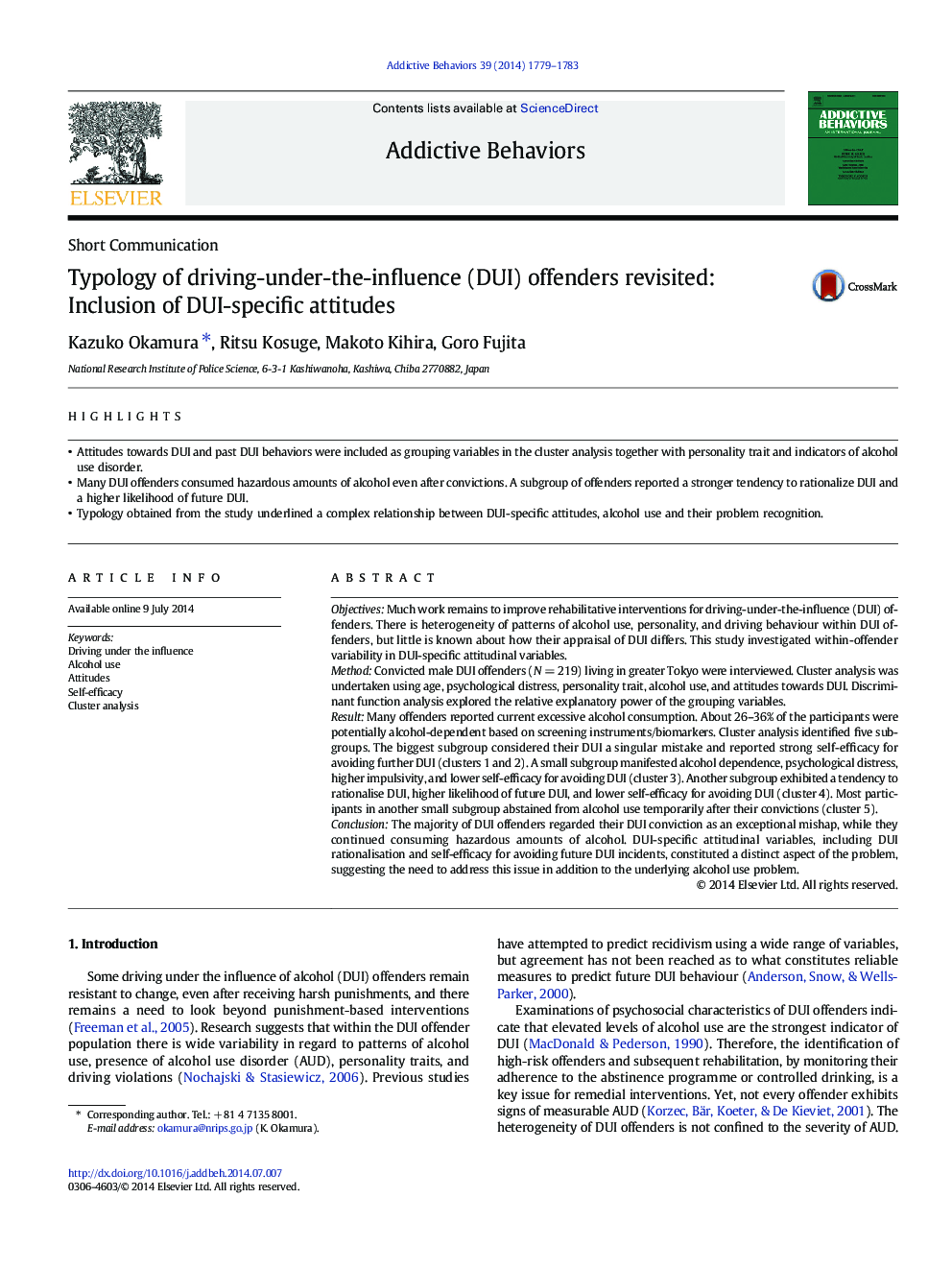| کد مقاله | کد نشریه | سال انتشار | مقاله انگلیسی | نسخه تمام متن |
|---|---|---|---|---|
| 898798 | 915342 | 2014 | 5 صفحه PDF | دانلود رایگان |

• Attitudes towards DUI and past DUI behaviors were included as grouping variables in the cluster analysis together with personality trait and indicators of alcohol use disorder.
• Many DUI offenders consumed hazardous amounts of alcohol even after convictions. A subgroup of offenders reported a stronger tendency to rationalize DUI and a higher likelihood of future DUI.
• Typology obtained from the study underlined a complex relationship between DUI-specific attitudes, alcohol use and their problem recognition.
ObjectivesMuch work remains to improve rehabilitative interventions for driving-under-the-influence (DUI) offenders. There is heterogeneity of patterns of alcohol use, personality, and driving behaviour within DUI offenders, but little is known about how their appraisal of DUI differs. This study investigated within-offender variability in DUI-specific attitudinal variables.MethodConvicted male DUI offenders (N = 219) living in greater Tokyo were interviewed. Cluster analysis was undertaken using age, psychological distress, personality trait, alcohol use, and attitudes towards DUI. Discriminant function analysis explored the relative explanatory power of the grouping variables.ResultMany offenders reported current excessive alcohol consumption. About 26–36% of the participants were potentially alcohol-dependent based on screening instruments/biomarkers. Cluster analysis identified five subgroups. The biggest subgroup considered their DUI a singular mistake and reported strong self-efficacy for avoiding further DUI (clusters 1 and 2). A small subgroup manifested alcohol dependence, psychological distress, higher impulsivity, and lower self-efficacy for avoiding DUI (cluster 3). Another subgroup exhibited a tendency to rationalise DUI, higher likelihood of future DUI, and lower self-efficacy for avoiding DUI (cluster 4). Most participants in another small subgroup abstained from alcohol use temporarily after their convictions (cluster 5).ConclusionThe majority of DUI offenders regarded their DUI conviction as an exceptional mishap, while they continued consuming hazardous amounts of alcohol. DUI-specific attitudinal variables, including DUI rationalisation and self-efficacy for avoiding future DUI incidents, constituted a distinct aspect of the problem, suggesting the need to address this issue in addition to the underlying alcohol use problem.
Journal: Addictive Behaviors - Volume 39, Issue 12, December 2014, Pages 1779–1783